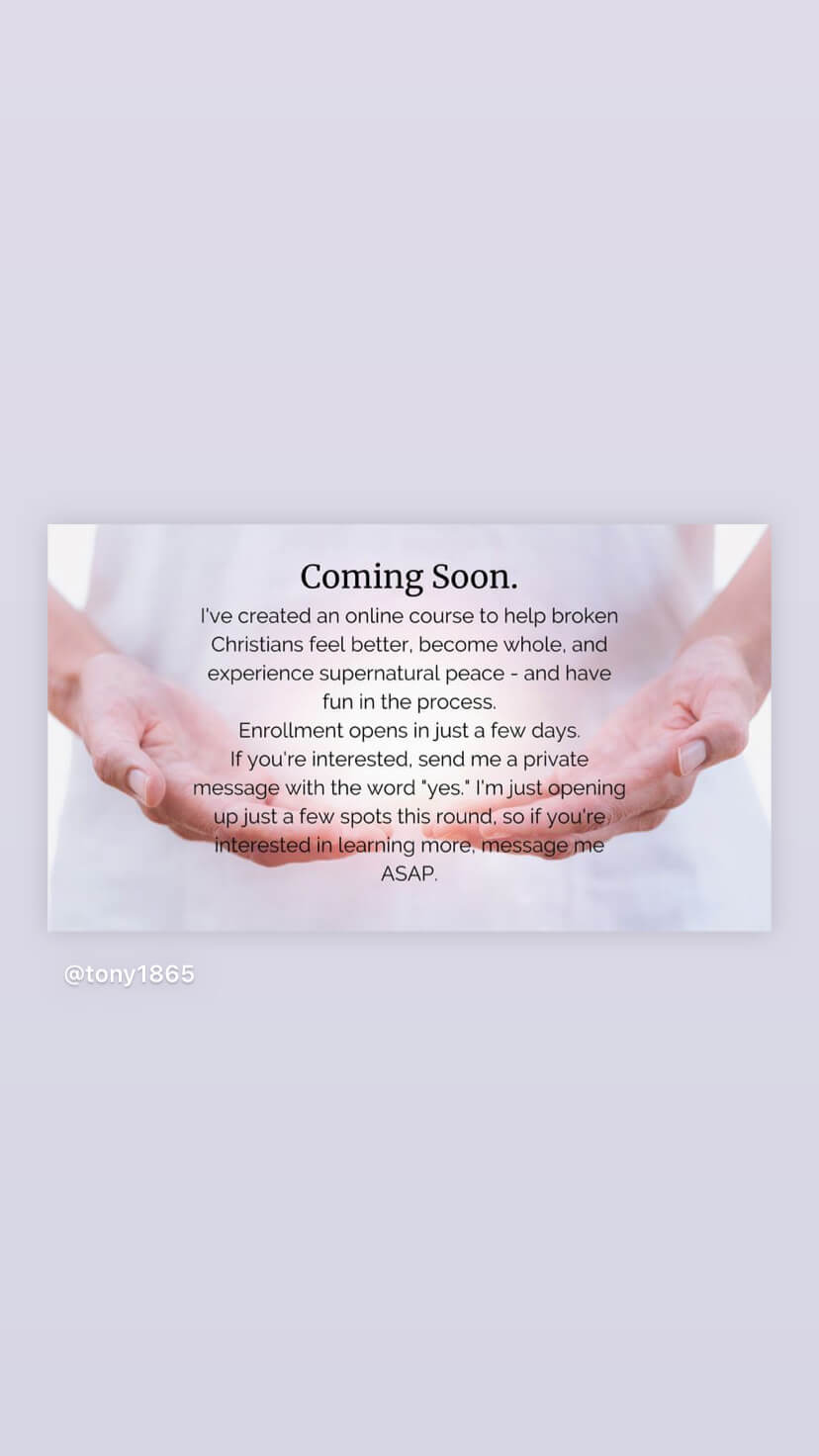Shaping Your Life by Shaping Your Thoughts
On October 16, 2016, I gave up worrying.
Reason? It didn’t seem to help.
That’s not to say that I don’t have other issues. Depression is my kryptonite. Migraine medicine and my “happy pills,” plus a total dependence on God who raises up medical professionals, keeps me in a good place … most of the time. I believe modern medicine can be a gift from God – it’s just another tool in His box to bring about healing, and that’s what I was looking for.
Regarding the worry thing: In October of 2016 I found myself bent out of shape, and these years later I don’t even remember what the issues were. I just know that they were awful. I needed a breakthrough, and I knew God alone could facilitate that.
So, I got my tent and went out to Timberlake Campground on the Ross Barnett Reservoir, which is about three miles from our house. I packed my clothes, sleeping bag, air mattress, and some basic provisions. My intent was to lay myself before God and say, “Okay, Lord, it’s just you and me. Let’s do this. I’m open and available.”
Because we have a gracious God, He blessed. I won’t go into the details – I know sometimes getting a few words out of me is like getting a drink of water from a fire hydrant – but I can say that over a couple of nights He moved me through a process of discovery and renewal. Healing and deliverance, if you will.
If you’re prone to worry and anxiety, here’s some of what I’ve learned. I journaled through this whole process. I’d be quick to say that if you are in a dark and desperate place, get some professional help. The stigma that used to be so prevalent – even among Christians! – of getting proper counseling and other medical attention is going away.
It’s often said that our life is shaped not just by our actions, but by our thoughts. As believers, we understand this goes deeper than simple psychology; it’s a principle that’s woven into the fabric of spiritual truths. The Bible reflects this in Proverbs 23:7, “As he thinks in his heart, so is he.” This is more than an observation—it’s a call to action for each of us to master our minds.
But in today’s world, it’s easy to find our thoughts drenched in worry. Concerns about health, finances, family, and the future can dominate our mental landscape. However, if “you become what you think about,” then constantly worrying can transform these temporary thoughts into permanent shadows over our lives.
The Trap of Worry
Worry is a tricky beast. It masquerades as “being responsible” or “just being realistic,” but it’s often an unnecessary burden. It saps our energy, reduces our effectiveness, and if left unchecked, can reshape who we are. Jesus Himself addressed this in Matthew 6:27, asking, “And which of you by being anxious can add a single hour to his span of life?” The rhetorical question highlights a profound truth: worry adds nothing but takes much.
Redirecting Our Thoughts
So, how do we combat this incessant worry? The key lies in redirecting our thoughts from what can go wrong to what can go right, and more importantly, to what is eternal. Note, too, that there is a difference between worry and legitimate concern. If it’s 2 a.m. and you don’t know where your 15-year-old daughter is and you can’t contact her, you’d best be concerned!
Count Your Blessings: Start by acknowledging the good. Make it a daily habit to identify things you’re grateful for. Gratitude is more than just a feel-good exercise; it’s a powerful way to change your thought patterns from pessimism to optimism.
Stay Present: Worry often pulls us into the past or catapults us into the future. Staying present helps us to engage with the here and now. Practicing mindfulness can help maintain a focus on the present moment rather than the uncertainties of tomorrow.
Lean on Scripture: Philippians 4:8 instructs, “Finally, brothers, whatever is true, whatever is honorable, whatever is just, whatever is pure, whatever is lovely, whatever is commendable, if there is any excellence, if there is anything worthy of praise, think about these things.” This is not just advice; it’s a prescription for mental health. Filling your mind with God’s truth can transform your perspective.
Building a Fortress of Faith
Building our thought life doesn’t happen overnight. It requires diligence and a proactive approach towards what we allow to dwell in our hearts and minds. Remember, the mind is a battlefield, and as 2 Corinthians 10:5 teaches us, we are to “destroy arguments and every lofty opinion raised against the knowledge of God, and take every thought captive to obey Christ.” This isn’t just defensive strategy; it’s an active, daily realignment of our thoughts with God’s truth.
Living What You Believe
Ultimately, mastering worry means aligning our thoughts with our faith. It’s living out the truth that God is sovereign, and He holds our days in His hands. When we truly believe that, our worries start to lose their grip on us. This doesn’t mean we won’t have concerns or that we ignore the realities of life. Rather, it means we face them with faith, not fear, knowing our thoughts are in line with God’s promises.

As we start to focus more on God’s truth and less on our worries, our lives can’t help but start to reflect the peace and purpose we read about in the Scriptures. Remember, “you become what you think about.” By focusing on God’s promises and truths, we can reshape our minds and, consequently, our lives. Let’s choose to fill our thoughts with what builds us up, not what tears us down.










